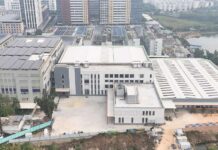Bangladesh is poised to commence cotton imports from the United States as a strategic move to mitigate the risk of potential tariffs on its exports, announced Foreign Affairs Adviser Md Touhid Hossain on Monday. During a workshop titled “The Potential and Importance of Cotton Cultivation in Bangladesh for Saving Foreign Currency,” organized by the Economic Reporters Forum (ERF) and the Bangladesh Cotton Association, Hossain underscored the importance of this initiative.
“The US government has imposed tariffs on various countries since the Trump administration began,” Hossain stated. “While Bangladesh has continued exporting under these tariff conditions, there remains uncertainty about the possibility of additional tariffs. By importing cotton from the US and subsequently exporting garments made from it, we hope to create a scenario that will make the US hesitant to impose higher tariffs on us.”
To bolster domestic cotton production, the government plans to recognize cotton as an agricultural product and introduce subsidies for its cultivation within the next three months. Hossain also urged Md Moazzem Hossain, Member of the National Board of Revenue (NBR) for Customs, Export, and IT, to take prompt measures to eliminate the existing 4 percent advance income tax on locally produced cotton.
In light of Bangladesh’s upcoming transition from Least Developed Country (LDC) status in 2026, Hossain reiterated that businesses should have been preparing for this anticipated change instead of seeking extensions. He pointed out that even after graduating from LDC status, Bangladesh will maintain duty-free access to the European Union for an additional three years, providing ample time for the business community to adjust to the transition.
Hossain also assured that Bangladesh would fulfill all necessary conditions to secure the Generalised Scheme of Preferences Plus (GSP+) scheme in the European Union.
At the same workshop, NBR Member Moazzem indicated that discussions were in progress to expand bonded warehouse facilities across various business sectors, suggesting that cotton imports could serve as a starting point. He also committed to presenting a proposal to withdraw the Advance Income Tax (AIT) on domestically produced cotton to the relevant NBR officials.

































